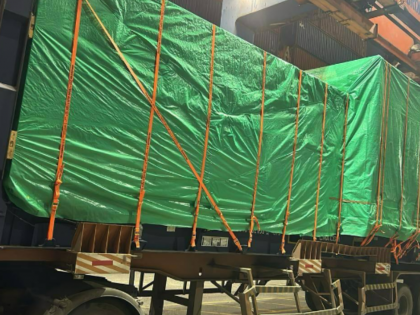
In a significant development, Indian security agencies intercepted a Karachi-bound ship from China at Mumbai’s Nhava Sheva port, suspecting a dual-use consignment that could potentially aid Pakistan’s nuclear and ballistic missile programs.
The Malta-flagged merchant vessel, CMA CGM Attila, was halted by customs officials on January 23, acting on intelligence input. The consignment, featuring a Computer Numerical Control (CNC) machine manufactured by an Italian company, underwent thorough inspection during the operation.
CNC machines are pivotal manufacturing devices guided by computer software, controlling complex machinery like grinders, lathes, mills, and CNC routers. Their efficiency and precision make them indispensable in various industries, but their potential dual-use nature raises concerns regarding their involvement in nuclear programs.
Since 1996, CNC machines have been covered by the Wassenaar Arrangement, an international arms control regime aimed at preventing the proliferation of equipment with both civilian and military applications. India, a member of this arrangement, actively participates in the exchange of information regarding transfers of such dual-use goods and technologies.
The seized consignment, originating from China, was reportedly intended for Cosmos Engineering in Pakistan, a company already under scrutiny for its alleged involvement in similar incidents in the past. Security agencies have raised concerns over the possibility of Pakistan using China as a conduit to acquire restricted items from Europe and the US, potentially disguising identities to avoid detection.
The ongoing investigation aims to ascertain whether the suspected Pakistani entities receiving these dual-use items are supplying them to the Defence Science and Technology Organisation (DESTO), responsible for much of Pakistan’s defense research and development.
This seizure underscores the vigilance of Indian security agencies in monitoring potential proliferation activities and highlights the challenges posed by clandestine efforts to acquire technology with both civilian and military applications. The incident also underscores growing concerns over the nexus between China and Pakistan in the context of nuclear and missile proliferation, warranting closer scrutiny and international cooperation to prevent such activities.
Sources By Agencies

